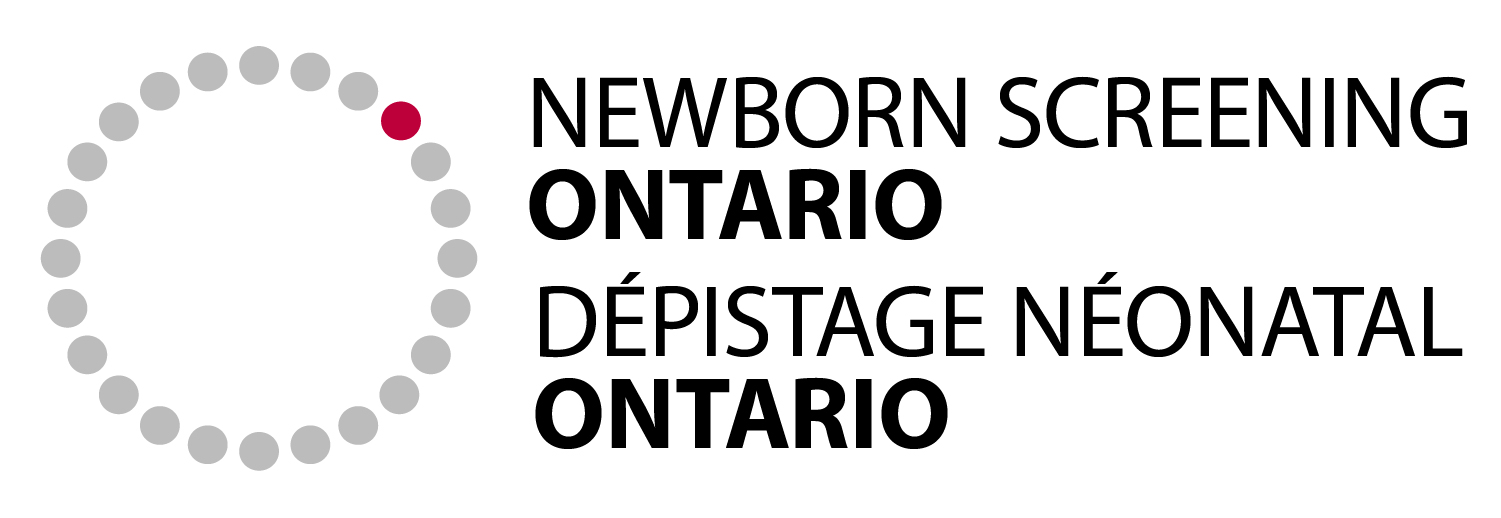- In Ontario, a heel prick is used to take a few drops of blood from each baby shortly after birth. The blood is tested for more than 25 treatable diseases, including CAH.
- A screen positive result means that more tests are needed to know whether or not a baby has CAH. It does not mean that a baby has CAH. Babies identified at a young age through screening can be treated early to help prevent health problems.
Congenital Adrenal Hyperplasia (CAH)
At a glance
| Approximate incidence in Ontario: | Marker measured: | Screening can prevent: | Treatment: |
| 1/15,000 | 17-OH-Progesterone | Salt-wasting crises, death | Hormone and mineral replacement |
Congenital adrenal hyperplasia (CAH) is a rare, inherited (genetic) disease that is present from birth (congenital).
- The adrenal glands are small organs which sit on top of the kidneys.
- These glands make several hormones that are essential for normal growth and development.
- CAH occurs when the adrenal glands are not working properly. In an effort to work better, they become bigger than usual (hyperplasia).
- Despite this, babies with CAH do not make enough of certain essential adrenal hormones including:
- Cortisol (the stress-response hormone)
- Aldosterone (the salt-retaining hormone)
- Also levels of male hormones, called androgens, become too high.
- It is normal for parents and guardians to feel worried when their baby has a screen positive result. A ‘screen positive’ result does not mean that a baby has CAH. It means that there is a chance that the baby may have CAH.
- Follow-up testing is important to find out whether the baby truly has CAH.
- The baby’s health care provider or a health care provider at a newborn screening regional treatment centre will discuss the results with the baby’s family.
- Follow-up blood and urine tests will be arranged as soon as possible.
- It can take a few days to weeks to find out if a baby truly has CAH or not. This waiting period can be hard for families.
Possible follow-up test results
- Normal – the baby does not have CAH.
- Abnormal – the baby does have CAH and will need treatment. The family will be supported by a team of caring specialists.
- Inconclusive – more testing is required to determine if the baby has CAH. The baby will be followed closely by a specialist to ensure that he/she receives optimal care.
Male babies with CAH appear normal at birth. Some, but not all, female babies with CAH are born with external genitalia that look more masculine than usual.
If untreated, early signs of the disease can include:
- poor feeding
- lethargy
- vomiting
- weight loss
- dehydration
- rapid heart rate
Early treatment helps to prevent serious and life-threatening health problems, such as:
- severe dehydration (salt-wasting)
- low blood sugar
- differences in growth and sexual development
Symptoms can range from mild in some babies to severe in others. Symptoms affect both boys and girls.
Treatment for babies with CAH begins as early as possible and is usually life-long.
- Babies with CAH are given the hormones their body is unable to make, usually in the form of pills.
- Babies with CAH are cared for by an endocrinologist (a hormone doctor) and have their health and development checked regularly.
- Regular follow-up tests are used to monitor and adjust treatments.
Early treatment can prevent life-threatening episodes and helps children with CAH to grow and develop normally.
If your baby has screened positive for CAH, click here for more information.
Contact Us
Children’s Hospital of Eastern Ontario
415 Smyth Road
Ottawa, Ontario K1H 8M8
Toll-Free: 1-877-627-8330
Local: (613) 738-3222
Fax: (613) 738-0853
